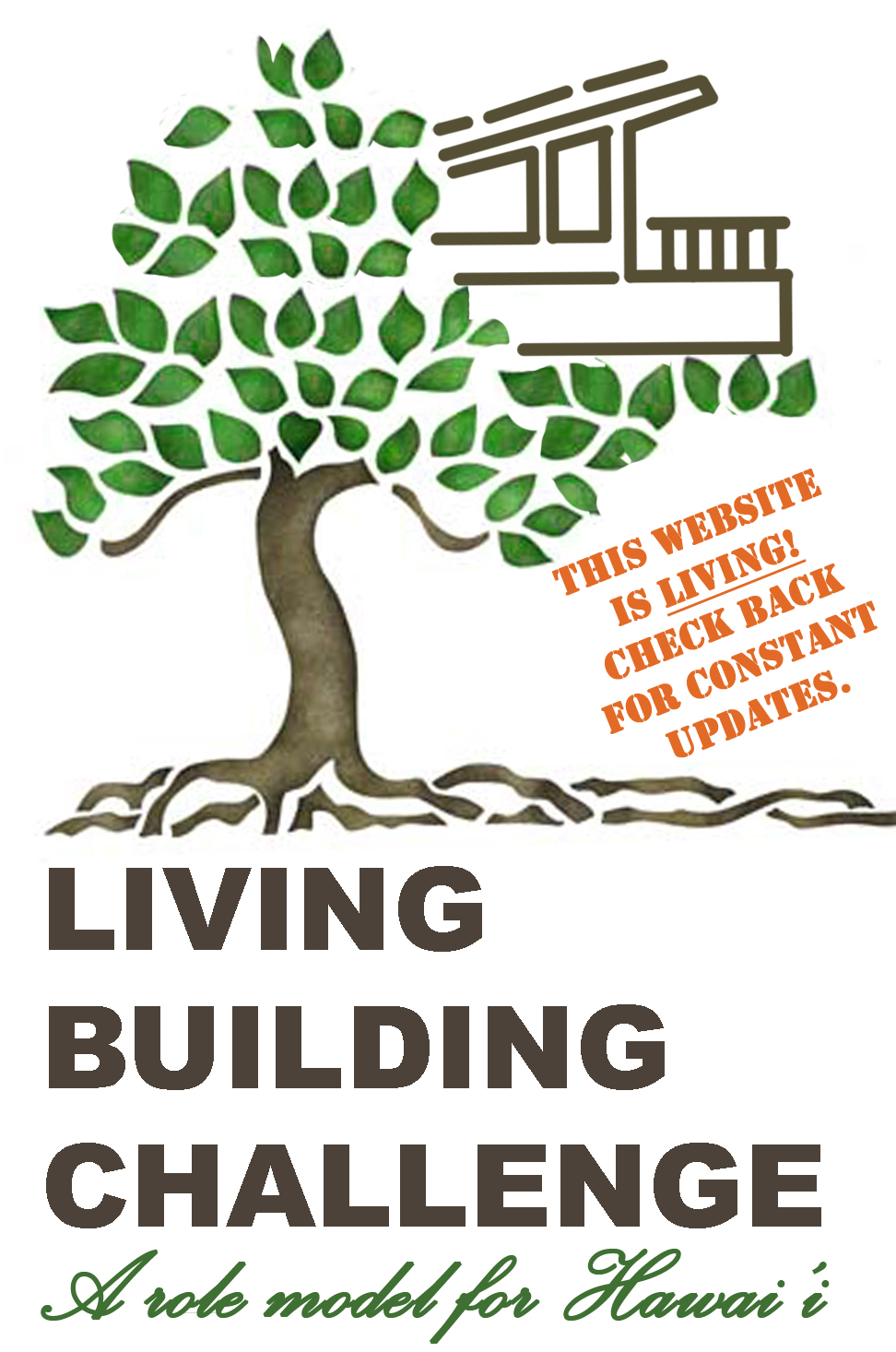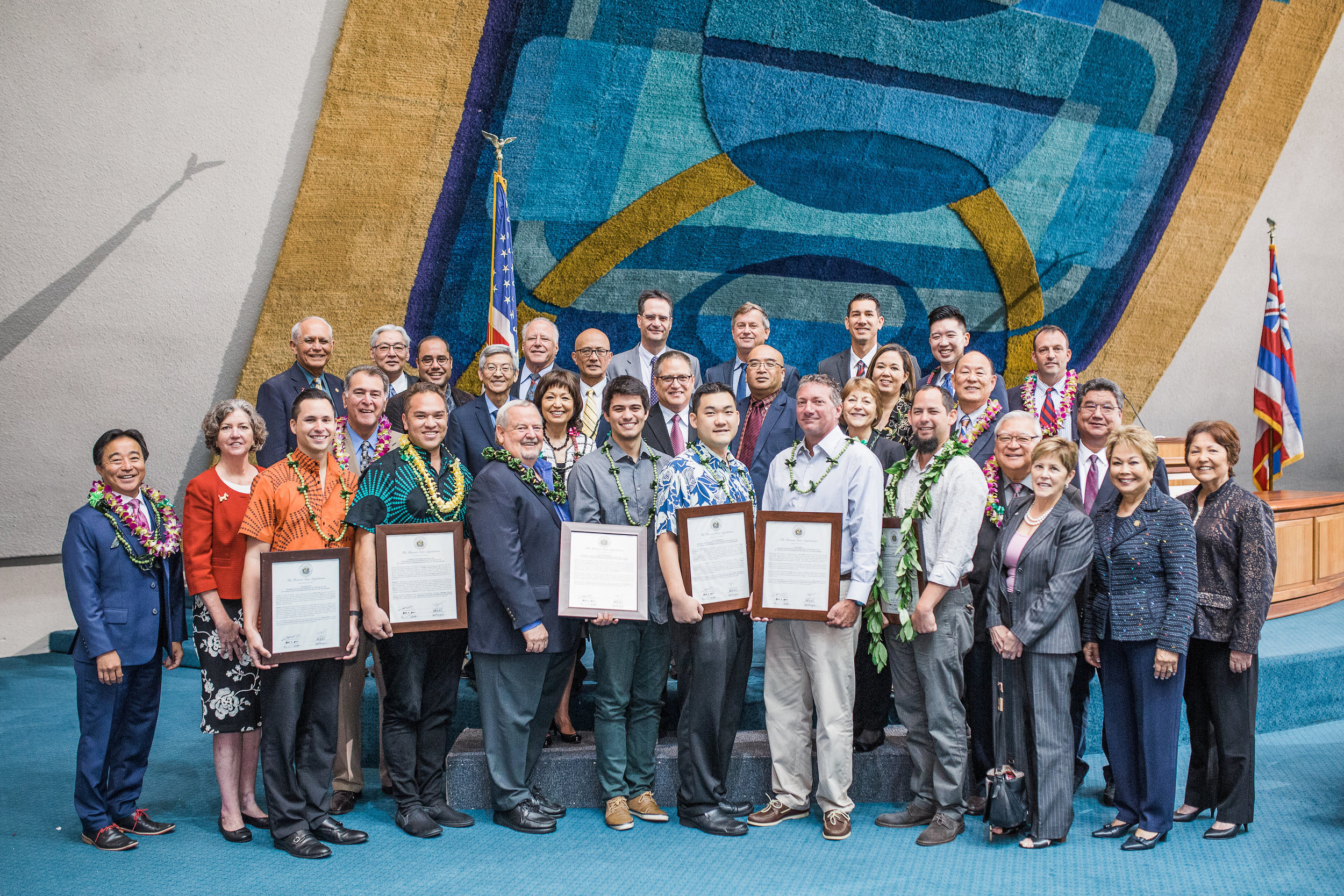Hawaii Venture Capital Association (HVCA) Island Innovator of the Year:
This award is to honor the most impactful innovation that has helped our island state – truly solving a problem in our own backyard, our mountains, our beach, our aina. This innovation inspires and celebrates an innovation, entrepreneur or company that has shown leadership and commitment to tackling a significant problem in our state.
Entrepreneurs are not easily defined. They are women and men, old and young, and from many walks of life. This much about them is consistent, however: they are Visionaries. They are people of passion. They have the ambition, drive and talent to take an idea and create a market where none has existed before. -HVCA awards committee
This year Aaron demonstrated by example the 1st Living Building to be built from 75% regional waste streams and is a role model residence in the State of Hawaii embracing Regenerative Building Design concepts while showcasing an Architecture with Reverence to Place. Regional and cultural priorities shape the building’s design. Regenerative buildings are buildings that become an integral part of their ecosystem. Regenerative buildings return more to the land than they consume and remediate the site in the process. The project is registered under the most difficult green building rating system in the World, called the Living Building Challenge (LBC). Exceeding the LBC’s standards, this living building could only be built with regional waste streams extracted exclusively from the Hawaiian Islands…. essentially Hawaii’s construction waste headed for the landfill, incinerator or in some cases even shipped back to the US Mainland for another State to manage. Any new building materials used in the project underwent the most stringent materials vetting process used in the building industry today before they could be included in the project.
Working with the State of Hawaii Department of Health, Aaron installed the first Pilot Project Case Study in the State of Hawaii to recycle 100% of its greywater and blackwater discharge from the building's sewer system where a city sewer lateral is available to the parcel. This is accomplished through an on-site aerobic treatment unit (ATU) that stores and treats the wastewater before irrigating sub-surface non-edible landscaping beds. The water can be used up to 3 times before it irrigates a plant. As an added safety measure, a soil moisture meter informs the system when moisture levels exceed allowable rates and diverts treated wastewater back into the city municipal sewer system. In this way, technology and engineering demonstrate a safe way to accomplish net-zero water strategies while working with the City’s existing infrastructure. Aerobic treatment unit technology is a clear alternative to septics and cesspool pollution. The goal of the project was to engineer a safe, predictable and proven strategy for achieving net-zero wastewater strategies in the built environment which the State could utilize as a privately funded case study to push the conversation forward.
Visit HVCA to learn more about the Island Innovator of the Year Award.






